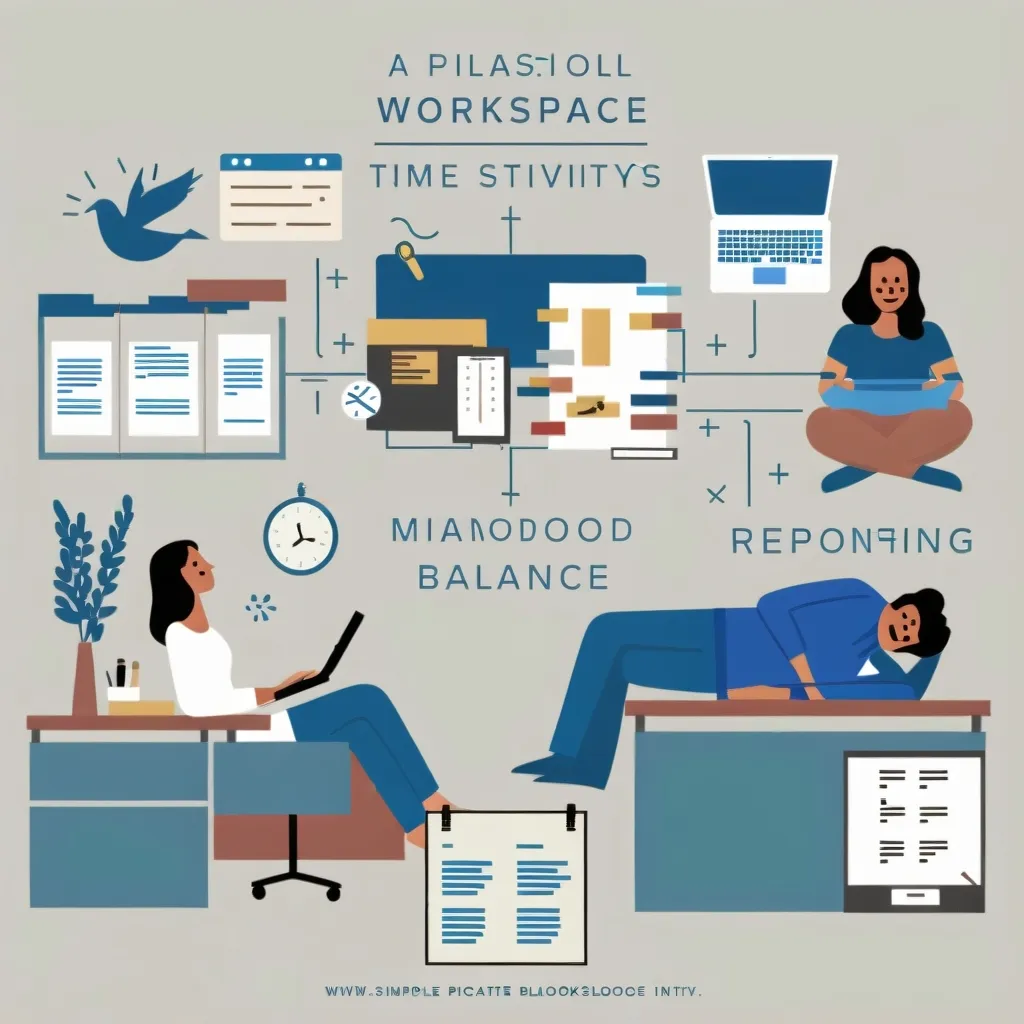The Power of Fewer Goals: A Fresh Approach to Success
We’ve all been there - setting ambitious New Year’s resolutions or creating long lists of goals, only to feel overwhelmed and discouraged when we fall short. But what if I told you that the secret to achieving more might actually lie in setting fewer goals? It’s a counterintuitive idea, but one that’s gaining traction among successful individuals and backed by research.
Think about it for a moment. How many times have you set a goal, only to forget about it a few weeks later? Or worse, how often have you achieved a goal only to feel a fleeting sense of satisfaction before moving on to the next big thing? It’s a common experience, and it highlights some of the pitfalls of traditional goal-setting.
Now, don’t get me wrong. Goals can be incredibly motivating and provide much-needed direction. But there’s a catch - when we become too fixated on the end result, we often lose sight of the journey that gets us there. It’s like being so focused on reaching the summit that you forget to enjoy the breathtaking views along the climb.
So, what’s the alternative? Enter the world of systems and processes. Instead of obsessing over specific outcomes, successful people often attribute their achievements to the routines and habits they’ve put in place. It’s not about the destination; it’s about the path you take to get there.
Let’s break this down with a real-world example. Say you’re a budding entrepreneur. Rather than setting a goal to make a million dollars in your first year (talk about pressure!), you might focus on creating a system for testing product ideas, building customer relationships, and refining your marketing strategy. By concentrating on these daily practices, you’re more likely to see continuous improvement and sustainable success.
But here’s the kicker - this approach isn’t just about being more productive. It’s about being happier too. When we’re too attached to specific outcomes, we can become less open to new opportunities and more likely to cut corners. We might even start to view activities we once enjoyed as chores. Remember that writer who used to love crafting stories but now sees it as just a means to rack up page views? Yeah, that’s what we want to avoid.
Research shows that people who focus on the process rather than the outcome tend to be happier and more creative. It’s like that old saying - it’s not about the destination, it’s about the journey. And let’s face it, life’s too short not to enjoy the ride.
Now, you might be thinking, “But what about motivation? Don’t goals keep us driven?” It’s a fair question. And yes, goals can be great motivators. But here’s the thing - they need to be reviewed regularly to be effective. Many of us are guilty of setting goals at the start of the year and then forgetting about them as life gets busy. Successful individuals, on the other hand, make it a habit to review their goals daily or at least weekly.
Imagine writing down your goals every single day. It might sound tedious, but it’s a powerful habit that keeps your motivation high and ensures your actions align with your long-term vision. It’s like having a compass that constantly reminds you of your true north.
But let’s talk about something that often gets overlooked in discussions about success - happiness. There’s this pesky little phenomenon called hedonic adaptation. Basically, it means we quickly return to our baseline level of happiness after achieving a goal. That rush of joy you feel when you hit a major milestone? Yeah, it’s fleeting.
This is where the beauty of focusing on systems comes in. When you find joy in the daily activities that lead to success, you’re not constantly chasing that next high. You’re savoring the journey, finding fulfillment in the process rather than pinning all your hopes on the outcome.
Think about it like this - if your goal is to lose weight, focusing on the process of eating healthily and exercising regularly can lead to better long-term results than obsessing over the number on the scale. Plus, you’re more likely to stick with these habits because you’re deriving intrinsic value from the activities themselves.
Now, let’s address the elephant in the room - stress. Setting ambitious goals can be incredibly stressful. There’s this constant pressure to perform, to meet expectations. And when we fall short? Well, that can be pretty demoralizing.
By reducing the number of goals or shifting focus to the process, you can alleviate some of this stress. It’s about finding a balance - having enough direction to keep you motivated, but not so much that you feel overwhelmed.
I know what you’re thinking - this all sounds great in theory, but does it actually work in practice? Well, let me share a little secret. I stopped setting formal goals about five years ago. And you know what? I’ve seen more progress and success than ever before. Plus, I’m way less stressed. And I’m not alone in this experience.
Many successful individuals have found that focusing less on goals and more on daily systems and processes has led to greater success and happiness. It’s like that old fable about the tortoise and the hare - slow and steady really does win the race.
So, what does this look like in practice? Let’s say you’re an investor. Instead of setting a goal to make a certain percentage return this year, your system might involve regular market analysis, diversification strategies, and a disciplined approach to buying and selling. By focusing on these daily practices, you’re more likely to achieve long-term financial success than if you were solely focused on hitting a specific number.
Or maybe you’re an aspiring musician. Rather than setting a goal to play at a major venue by the end of the year, your system could include daily practice sessions, regularly seeking feedback, and consistently putting your work out there. The venue gig might come as a natural result of your efforts, but even if it doesn’t, you’ll have improved your craft and expanded your reach.
The beauty of this approach is its flexibility. Life is unpredictable, and rigid goals often don’t account for changing circumstances or new opportunities. By focusing on systems, you’re better equipped to adapt and thrive in any situation.
Now, I’m not saying you should completely abandon goals. They can still serve a purpose in providing general direction. But try holding them more loosely. Use them as guideposts rather than fixed destinations. And most importantly, focus on the systems and processes that will get you there.
Remember, success isn’t a straight line. It’s a series of ups and downs, twists and turns. By enjoying the walk, perfecting your systems, and finding intrinsic value in your daily activities, you’re setting yourself up for sustainable success and happiness.
So, the next time you’re tempted to set a long list of ambitious goals, take a step back. Think about the systems and processes that will get you there. Focus on the journey, not just the destination. You might just find that success is more within reach than you ever imagined.
And who knows? You might even enjoy the ride a whole lot more along the way. After all, isn’t that what it’s all about?






